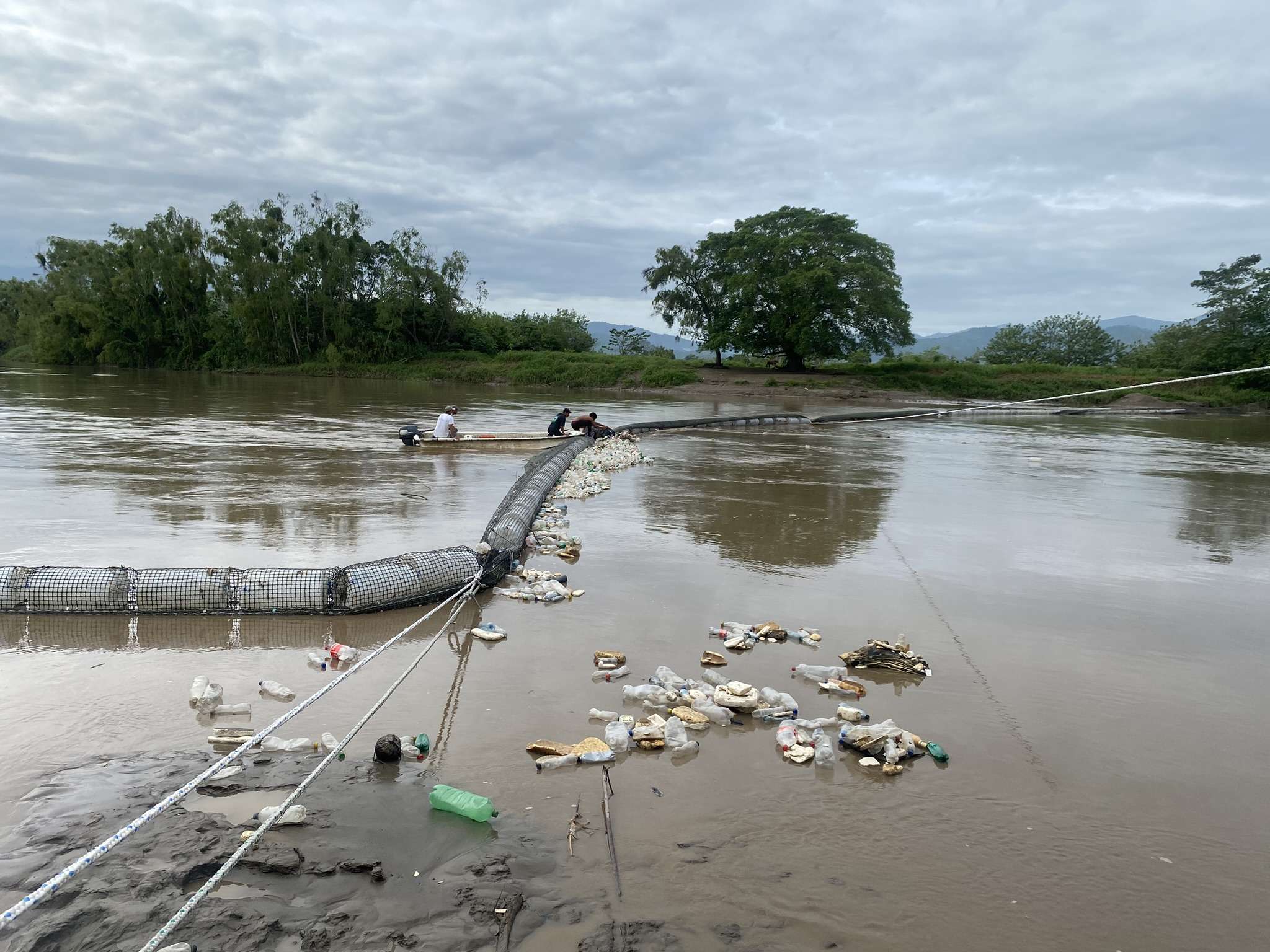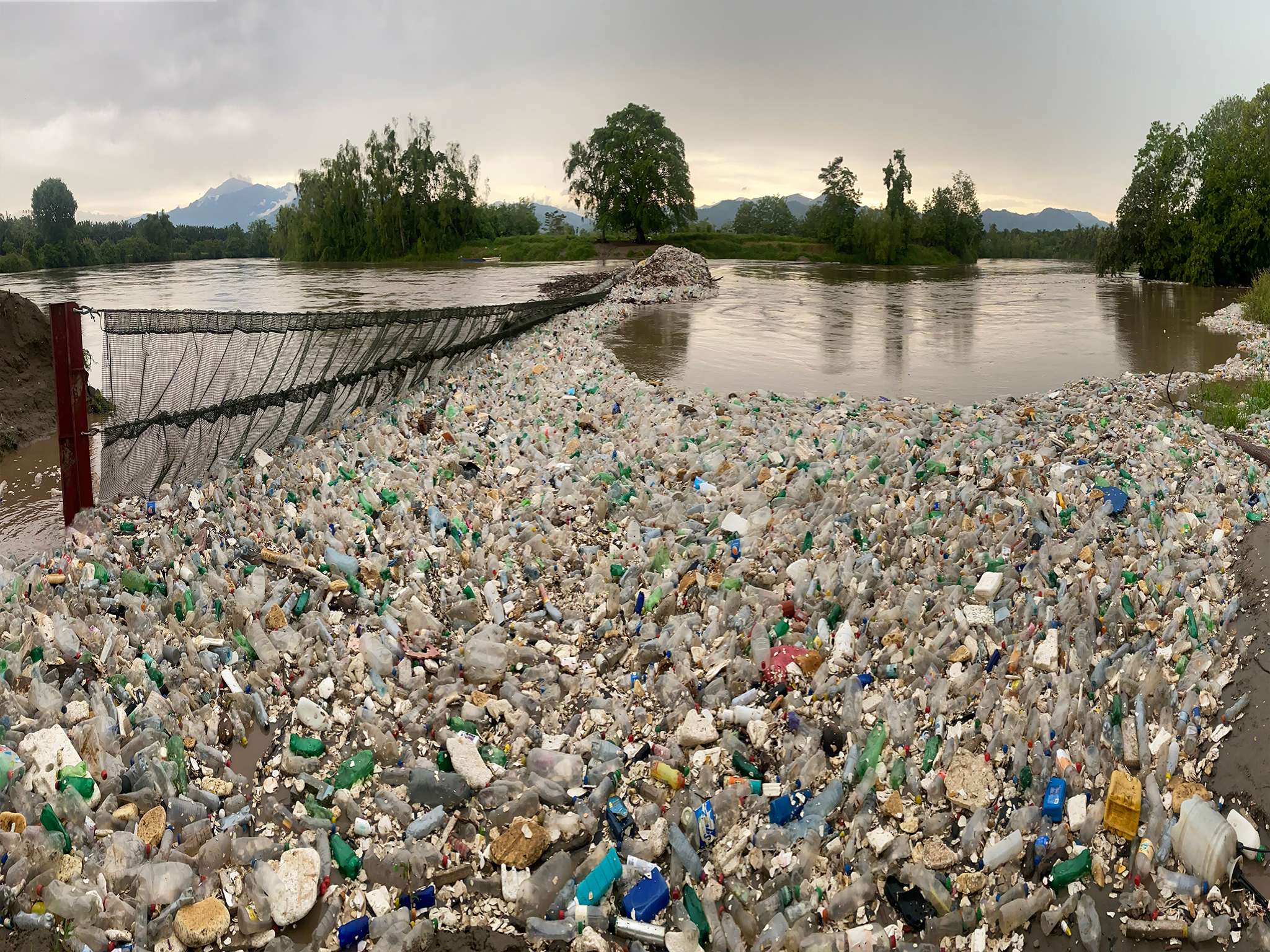The Environmental Challenge of Guatemala’s Motagua River: A Call to Action
The Motagua River, flowing through Guatemala and into the Gulf of Honduras, is one of the most polluted rivers in Central America. This vital waterway tragically contributes approximately 18 million kilograms of waste to the ocean each year. During Guatemala’s rainy season, the amount of solid waste transported by the river can exceed 60,000 tonnes in just a few months, significantly increasing pollution levels in the Caribbean Sea. This alarming situation underscores the urgent need for effective solutions to combat the environmental degradation caused by plastic pollution in this crucial Guatemalan river.
The Motagua River Project: A Landmark Achievement in Plastic Waste Interception in Guatemala
At RiverImpact, we are proud to announce our most significant accomplishment to date: the successful installation of a 150-meter-long RiverImpact Barrier in the Motagua River, Guatemala. The Motagua River is notoriously known as one of the most polluted rivers in Central America, with vast amounts of plastic waste flowing into the Caribbean Sea, especially during Guatemala’s rainy season. This project marks a critical milestone in our mission to address this environmental crisis in Guatemala.
Addressing a Critical Environmental Challenge in Guatemala
Over the past three months, our dedicated team has worked tirelessly to design, install, and anchor this barrier just in time for the rainy season in Guatemala—a period when flash floods rapidly transport thousands of tonnes of plastic waste downstream into the ocean. During this critical time, approximately 80% of ocean-bound plastics enter marine ecosystems, posing a severe threat to biodiversity and coastal communities. The RiverImpact Barrier is a testament to our commitment to developing affordable, simple, and highly effective technology to intercept plastic waste, even under the most challenging weather conditions in Guatemala.
Immediate Impact and Operational Success in Guatemala
On the very first day of deployment, our barrier successfully intercepted an astounding 500 cubic meters of plastic waste—equivalent to 50 truckloads. This remarkable achievement underscores the effectiveness of our technology and its potential to significantly reduce plastic pollution in Guatemala. The collected plastic waste is carefully extracted from the barrier using an excavator and transported to our sorting facility in Guatemala. There, a team of experienced waste collectors meticulously classifies the waste, ensuring that each material is properly processed for recycling or disposal.
From Waste to Resource: The Journey of Plastic Toward a Sustainable Future in Guatemala
The plastic waste intercepted from the Motagua River in Guatemala is sorted and managed according to its material type. PET plastics are sold to recyclers, Styrofoam is incinerated, and HDPE and LDPE plastics are set aside for future use in our upcoming recycling plant, which is scheduled to become operational later this year in Guatemala. This sustainable waste management approach not only mitigates environmental impact but also generates revenue, ensuring the long-term viability of our projects in the country. The transformation of waste into valuable resources exemplifies our commitment to a circular economy and a sustainable future in Guatemala.
Experience the full process of our RiverImpact barrier in action: beginning with its installation, observe how it swiftly intercepts plastic from the river’s current, followed by the systematic collection, sorting, and transportation of the captured plastic waste, turning it into valuable resources for a sustainable future.


From the moment of installation, our barrier immediately began capturing plastic carried by the river’s current. Just a few hours later, it had already collected a significant volume, demonstrating the swift and powerful impact of our solution.
A Collaborative Effort: Partnering for a Cleaner Future in Guatemala
This groundbreaking project would not have been possible without the invaluable support of our partners: Deltares, Fundaeco, the Institute of Climate Change, and the Municipality of Puerto Barrios, Guatemala. Together, we are making a tangible difference in the fight against plastic pollution and paving the way for a cleaner, healthier future for our planet, with a particular focus on Guatemala.